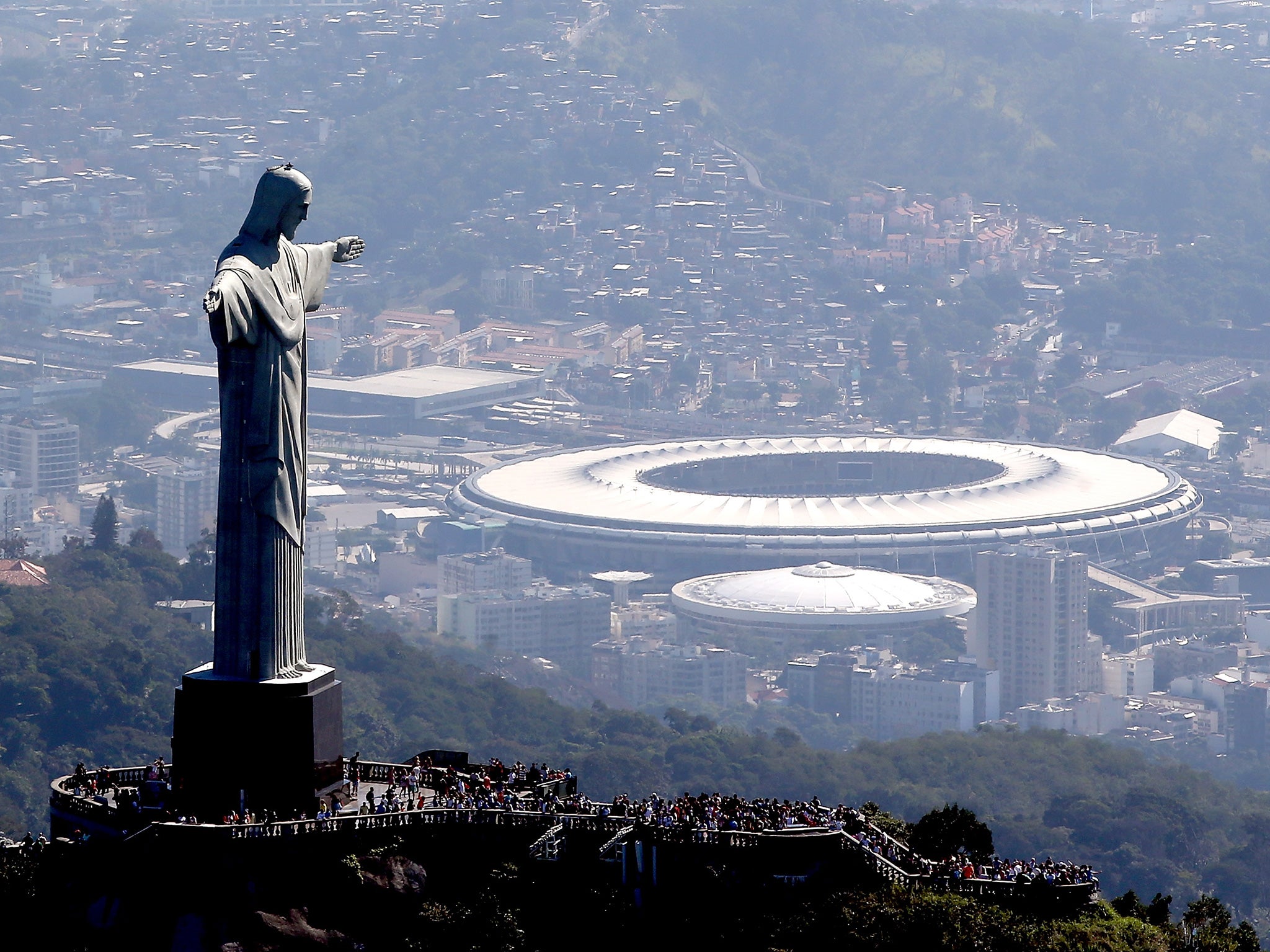Rio 2016 will be a Brazilian carnival of greed, doping and tear gas – but I'll still be watching the Olympics
Next week a press conference will be called because a Russian swimmer has been found to have blood that makes him 40 per cent human and 60 per cent jet-ski


In the end it’s gone splendidly for Brazil. The Brazilians say they’ve delivered everything promised in their bid – which is true, if their bid began “our vision is to provide riots, an impeached President, a deadly virus, imaginative scales of corruption, and a bit of cycling”.
Some cynics said they wouldn’t get everything ready on time, but Brazilian politicians issued reassuring statements such as, “We deny reports that claim the Zika virus is behind schedule. Obviously a disease as ambitious as this takes a great deal of planning, but we guarantee it will be infecting half the country well in time for the start of the games.”
Hopefully the opening ceremony will reflect the true spirit of its hosts, starting with one-third of the competitors being sacked. Then the police will fire on the spectators, who will riot until one of them throws a petrol bomb at the podium, which will light the Olympic flame and the games can begin.
Then the first event should be a mosquito race, guaranteeing gold for Brazil, which will be won by an insect in lane four which then secures a $20m sponsorship deal from Nike.
It’s the diverse nature of the problems that are so impressive. It turns out the water around Rio is 1.7 million times more contaminated than believed when it was first found to be contaminated. This is exactly what Olympic sailing has needed, to make it more of a spectator sport, so commentators can shriek, “Oh my goodness, the Bulgarian has been sucked into a bubbling green whirlpool that makes deep guttural groaning noises and has been reported as home to a three-headed dragon guarding a gateway into the underworld. So he slips into fifth place and could miss out on a medal altogether.”
Most commentators suggest we’ll forget all these problems once the competition has begun. That’s probably true; by then we’ll be fascinated by the scale of drugs cheating instead.
The level of doping may be breaching the Olympic ideal, because now it’s being organised by governments of superpowers, the old-fashioned Olympian amateur drugs cheater barely stands a chance. The Russians are accused of practises such as drilling holes through walls to steal back doped blood from testing labs, but most of the Russian team is allowed into the games as normal.
So now you expect at some point in the next week, a press conference will be called because a Russian swimmer has been found to have blood that makes him 40 per cent human and 60 per cent jet-ski. And a test reveals their world record breaking high jumper was a falcon.
Then the Olympics Committee will announce: “We are taking legal advice on whether we can fine the Russian team up to $12 for the cost of cleaning the high jumper’s droppings that landed in the long jump sandpit.”
As with the World Cup, there have been riots in the favelas, from which hundreds of people have been moved to make room for the Olympic Park, and the riot police fired rubber bullets. This sort of episode is becoming so regular with each Olympics, rioting ought to be admitted as an Olympic sport, with newspapers building up the plucky little team from Croydon, until they complain they didn’t stand a chance as our training facilities are so depleted compared to the immaculate modern riot zones in France and Palestine.
Usually the police stop firing at demonstrators once an Olympics starts. But yesterday the police managed to tear gas a demonstration of teachers in the centre of Rio, and the plan may be to add to the spirit of the games by not stopping at all. The ribbon gymnasts will be tear gassed for carrying an offensive weapon, and there will be a synchronised tear gassing event, in which one set of riot police fire on doctors while another force fires on students in exactly the same rhythm while smiling through nose pegs.

The other trend that may be reducing excitement levels, is the admission of a series of new sports, continuing with the introduction of climbing and surfing, and the next Olympics will probably include violining, carpet fitting, burping, feeding goldfish and shouting "wanker" from a van, (“WHAT a ride from the gas fitter from Sutton, an Olympic record of 42 in 58.7 seconds”).
This could be the least anticipated Olympics in history, which seemed impossible when Rio won the bid. Because most economists have been trained by sports commentators, who declare if a football team or tennis player is doing well, “I can’t see any way back from here”, for whoever’s losing. Then they can end up gasping “well who would ever have thought that things might change?”
Less than a decade ago, Brazil was a gloriously booming developing nation. And just like in Britain 15 years ago, all sensible commentators insisted there was no way that development ever stop. It was the perfect country to host an Olympics; it would be a huge carnival.
Now we view it as a carnival of greed, doping and tear gas. Even so, I bet I end up spending nine hours at a time screaming “go on the bloke from Kazakhstan” at the bloody weight-lifting.
Join our commenting forum
Join thought-provoking conversations, follow other Independent readers and see their replies
Comments
Bookmark popover
Removed from bookmarks